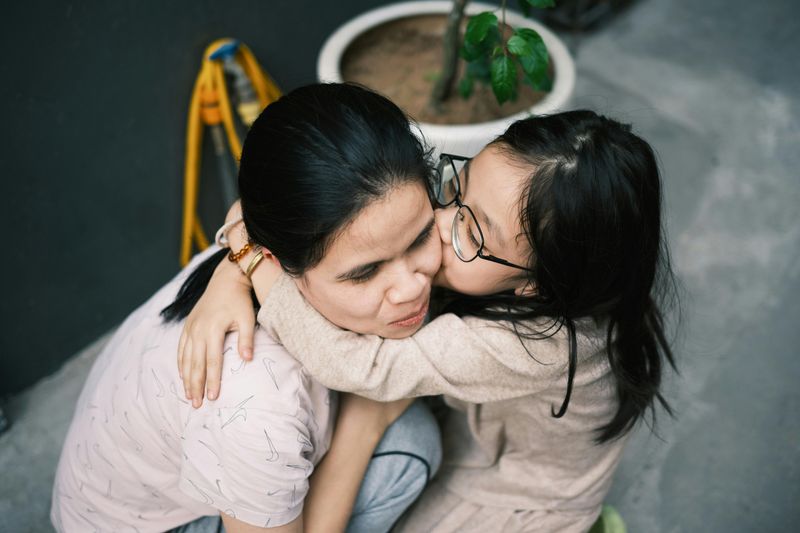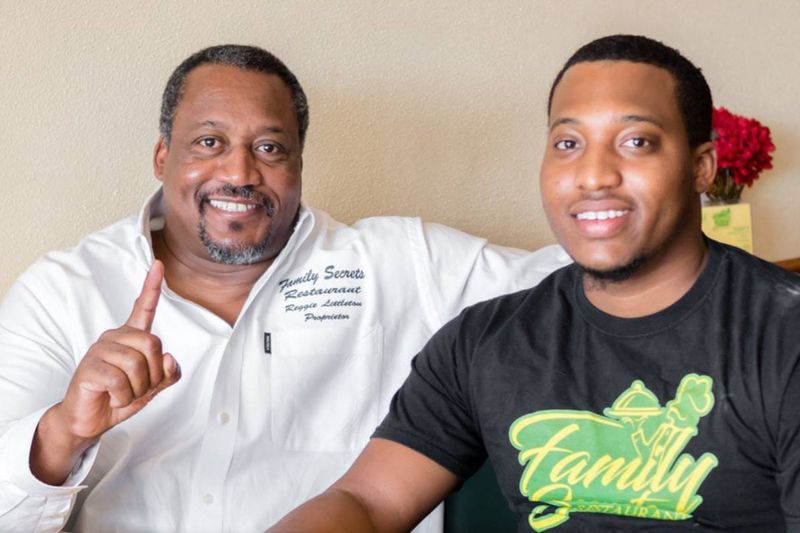20 ‘Wait, That Wasn’t Normal?’ Moments From Growing Up With Emotionally Immature Parents
Growing up with emotionally immature parents doesn’t always look dramatic from the outside—but it leaves a mark. The rules are often unspoken, the roles quietly reversed, and the impact isn’t fully understood until much later.
What felt like just “how things were” can turn out to be patterns that shaped your entire sense of self. Sometimes it hits you mid-conversation or while parenting your own kids—that lingering thought: Wait… that wasn’t normal, was it? These moments aren’t always loud, but they stick.
They come wrapped in confusion, subtle grief, and a strange kind of clarity that only adulthood can bring. This post is about those realizations—the ones that turn past survival into present understanding. Let’s name them, sit with them, and maybe laugh a little at how weirdly familiar some of it still feels.
1. Being expected to manage your parent’s moods

In homes where an emotionally immature parent resides, the child’s world revolves around the parent’s mood. I remember the constant alertness, gauging the atmosphere as soon as I entered the room. It was as if I was on a stage, performing to maintain harmony, always ready to adjust myself to keep the peace.
The expectation to stabilize their emotions became an unspoken rule. This role of emotional caretaker subtly seeped into other relationships as I grew older. From friendships to romantic partnerships, I found myself always taking on the role of the ‘fixer’.
It’s a pattern that’s hard to shake, this ingrained need to ensure everyone’s happiness. But, the truth is, it’s a heavy burden for a child to bear, one that teaches self-neglect over self-care and one that can result in children cutting off ties with their parents. Realizing this isn’t normal can be a powerful step towards healing.
2. Apologizing for things that weren’t your fault just to keep the peace

Apologizing became second nature when living with emotionally immature parents. Even when I knew I hadn’t done anything wrong, saying sorry was easier than dealing with the fallout. This habit took root early, as I learned that peace was more easily achieved through my apology than through any attempt at understanding.
These apologies weren’t admissions of guilt but strategies for avoiding conflict. They were shields against the storm of emotions that could rage through our home at any moment. Over time, this constant peacekeeping disguised itself as taking responsibility, planting seeds of self-doubt and confusion.
As an adult, I often found myself apologizing at the drop of a hat, even when circumstances didn’t warrant it. Realizing this tendency was a protective strategy rather than a reflection of reality has been incredibly liberating. It’s a reminder that seeking harmony shouldn’t mean losing oneself in the process.
3. Getting the silent treatment instead of honest communication

The silence was deafening, more unsettling than any argument could be. When my parent was upset, they wouldn’t voice their feelings; they’d simply stop talking. This passive-aggressive tactic left me in a state of confusion and anxiety, unsure of what had triggered the silence or how to fix it. Only later did I find out it was a sure-fire way to create loser kids.
Without open communication, I learned to internalize the blame, believing I was always the problem. These long stretches of silence taught me to tiptoe around conflicts, fearing the isolation that came from unresolved issues.
Even now, silence can feel like a punishment. I’ve had to learn that conversation is key to resolving misunderstandings, and that it’s okay to demand honesty from relationships. Understanding that communication shouldn’t be a weapon but a tool for connection has been a vital lesson.
4. Feeling like the adult in the relationship

It was like role reversal in my household. The responsibilities of an adult were often placed on my shoulders. From managing household chores to offering emotional support, I found myself stepping into shoes far too big for a child.
This dynamic forced me to grow up faster than my peers, robbing me of a carefree childhood. While others were playing, I was planning, trying to hold everything together. It taught me resilience, yes, but also bred a deep fatigue, a weariness from always being the responsible one.
As I’ve grown, I’ve had to remind myself that it’s okay to lean back and let others take the lead. It’s a battle to unlearn the instinct to control and manage, but understanding that children should never have to parent their parents is a freeing realization.
5. Being told to “stop crying” instead of being comforted

Crying was a weakness, or so I was taught. Whenever tears welled up, they were met with a curt command to stop, rather than comfort. The lesson was clear: emotional expressions were unwelcome. This constant dismissal sowed seeds of confusion and shame, urging me to bottle up feelings rather than process them.
It’s bewildering as a child to not understand why your emotions are invalidated, why vulnerability is seen as an inconvenience. Over time, you learn to hide your feelings, plastering on a brave face even when your heart aches.
This approach to emotions can lead to a struggle with self-expression later on. As an adult, embracing vulnerability and recognizing its strength has been a journey. It’s about breaking down the walls built in childhood and allowing myself to feel without fear of rejection. Emotions are not a sign of weakness but a testament to our humanity.
6. Walking on eggshells to avoid setting them off

The tension was palpable, a constant undercurrent in the house. I learned to predict the unpredictable, honing in on the sounds of footsteps or changes in tone that might signal an impending meltdown. Living in a state of hypervigilance, every word was weighed, every action calculated to avoid lighting the fuse.
This environment taught me to prioritize others’ feelings over my own, a habit that’s proven hard to break. It’s exhausting, feeling responsible for maintaining peace, always on alert for the next emotional storm. This hyper-awareness became second nature, a survival tactic that followed me into adulthood.
Even now, I find myself overly attuned to the moods of those around me, fearing any disruption. Realizing that not all relationships require this level of caution has been a revelation. It’s allowed me to relax, to breathe deeply without fear of the next emotional upheaval, and to seek balance.
7. Having your feelings dismissed or mocked

Expressing feelings in my household was often met with laughter or dismissal. My emotions were not only ignored but sometimes became the punchline, teaching me to second-guess my reactions and keep my thoughts to myself. This mockery created a barrier, one that told me my feelings were ridiculous or unwarranted.
This environment fostered a sense of isolation, where vulnerability felt unsafe. It became easier to stay silent than risk mockery, a habit that seeped into other aspects of life. Silencing myself became second nature, a way to avoid criticism or ridicule.
As I grew, I realized that everyone deserves to have their feelings acknowledged and respected. Learning that it’s okay to express myself and that my feelings are valid has been empowering. Everyone deserves to be heard and understood. Parents who fail to teach their kids this are at risk having children who won’t be able to stand them in the future.
8. Being guilt-tripped for setting boundaries

In my household, setting boundaries felt like a betrayal. Whenever I tried to carve out space for myself or say no, I was met with guilt trips that twisted self-protection into selfishness. It was a tactic that made me question my worth, leaving me tangled in a web of obligation.
This guilt made it difficult to maintain personal boundaries, as I feared the backlash of disappointment or anger. The constant pressure to please overshadowed my right to autonomy, trapping me in a cycle of people-pleasing.
As an adult, learning to assert boundaries without feeling guilty has been a challenge. It’s a process of understanding that my needs matter and that setting limits is not an act of defiance but of self-care. Recognizing guilt as a manipulative tool has helped me reclaim my voice and prioritize my well-being over others’ expectations.
9. Not being allowed to express anger or frustration

Anger was a forbidden emotion in my home. Expressing frustration was met with immediate shutdown, leaving no room for healthy release. I quickly learned that showing anger only made things worse, so I tucked it away, hiding it beneath a facade of calm.
This repression led to a simmering pot of emotions, always on the brink of boiling over. Without an outlet, anger turned inward, morphing into shame and self-doubt. It taught me to fear my own emotions, equating them with negative consequences.
As an adult, I’ve realized the importance of acknowledging all feelings, even the uncomfortable ones. It’s about finding constructive ways to express and process them, recognizing that anger, when understood, can be a powerful force for change. It’s a reminder that all emotions are valid and deserve to be felt, not feared.
10. Being shamed for needing attention or affection

In a household where emotional needs were seen as burdens, I learned early that seeking attention was taboo. My requests for affection were met with eye rolls or comments that labeled me as needy or dramatic. This shaming taught me to suppress my natural desire for connection, fearing judgment or rejection.
This lack of nurturing created a void, one that I struggled to fill in relationships outside the home. I longed for connection but feared reaching out, worried I’d be seen as demanding or clingy. It was a constant battle between craving affection and avoiding the shame that accompanied it.
As I’ve matured, I’ve embraced the understanding that needing attention is a fundamental human desire, not a weakness. It’s been a journey to welcome love and support without guilt, to recognize that my needs are valid. Everyone deserves to be loved and accepted without conditions or judgment.
11. Watching your parent play the victim in every situation

My parent had a knack for twisting situations to cast themselves as the victim, regardless of the reality. Watching this unfold taught me to question the fairness and truth of every scenario, blurring the lines between right and wrong. It was confusing to see them dodge responsibility, even when the fault was clear.
This behavior made it difficult to trust my perceptions, leading me to constantly second-guess myself. It was a masterclass in deflection, where my parent avoided accountability by rewriting narratives. The manipulation left me feeling unsettled, unsure of where the truth lay.
As I grew older, I’ve had to focus on separating reality from dramatization, trusting my instincts and understanding that taking responsibility is a sign of strength, not weakness. It’s been crucial to redefine fairness and hold myself to a standard of honesty and integrity, breaking free from the cycle of denial.
12. Being dragged into adult problems and conflicts

Adult conflicts were a regular part of my childhood landscape. From money issues to relationship drama, I was often thrust into situations that left me feeling overwhelmed and out of place. I was a kid forced into the role of a confidant or mediator, absorbing stress that was far beyond my years.
This exposure to adult problems stripped away the innocence of childhood, replacing it with anxiety and worry. Instead of carefree days, I was consumed by the weight of issues I didn’t fully understand which is something I resent my parents deeply. It was a reversal of roles that left me longing for the simplicity that should’ve been my right.
As an adult, creating boundaries between myself and others’ problems has been essential. It’s been a lesson in recognizing that I am not responsible for fixing everything around me, and that protecting my mental space is just as important as helping others.
13. Feeling like love had to be earned

Love in my household felt like a transaction, something to be earned through good behavior or achievements. This conditional affection made me equate success with worthiness, always striving to meet standards set by my parent. It was a dance of approval, where love felt more like a reward than a given.
This mindset seeped into my relationships, where I found myself bending over backwards to prove my value, often at the expense of my own needs. It was exhausting, feeling like I had to constantly earn the right to be loved.
Realizing that true love should be unconditional has been a revelation. It’s been about accepting that my worth isn’t tied to accomplishments, but inherent in who I am. Breaking free from this mindset has allowed me to embrace love freely, understanding that it shouldn’t come with strings attached, but be given with open hands.
14. Being praised one moment and criticized the next

Living with an emotionally immature parent meant riding a rollercoaster of emotions. One moment, I’d be showered with praise, the next, criticized harshly for the same deed. This inconsistency left me on shaky ground, never knowing where I stood. It was a whirlwind that bred insecurity rather than confidence.
These unpredictable reactions made it hard to trust any positive feedback, as criticism loomed just around the corner. It was a cycle that kept me on edge, always bracing for the next shift in mood. I learned to question my worth, unsure of which version of myself to present.
As I’ve grown, I’ve worked to stabilize my self-esteem, separating external validation from self-worth. It’s been about finding consistency within myself, regardless of others’ opinions. Understanding that my value doesn’t fluctuate based on someone else’s perception has been freeing, allowing me to stand firm in my own identity.
15. Getting inconsistent reactions to the same behavior

Rules were ever-changing in my home, a source of constant confusion. One day, a behavior would be deemed acceptable; the next, it was a source of ire. This inconsistency forced me to constantly guess what was right, creating a landscape of uncertainty. It was like navigating a minefield, never sure which step would set off an explosion.
This instability and gaslighting parents taught me to be hyper-aware, always on the lookout for signs of impending shifts. It was exhausting, trying to predict reactions to avoid conflict. The lack of clear guidelines made it hard to trust any sense of normalcy.
As an adult, establishing consistency in my own life has been a priority. It’s about creating a stable environment where expectations are clear and reliable. Learning to trust in steady ground has been a relief, teaching me that predictability, rather than chaos, is the foundation of healthy relationships.
16. Feeling responsible for their happiness

In my home, my parent’s happiness felt like my responsibility. Their mood seemed directly tied to my actions, making me feel like the keeper of their emotional well-being. This pressure to ensure their happiness was a heavy burden to carry for a child, one that taught me to prioritize their needs over my own.
This dynamic led to a constant balancing act, where I was always trying to gauge how to keep them content. It was a silent agreement, where their emotional state was my obligation, regardless of my own feelings.
As I’ve navigated adulthood, I’ve worked to untangle myself from this perceived responsibility. It’s been about understanding that everyone is in charge of their own happiness, and that my well-being is equally important. Letting go of this weight has been transformative, allowing me to focus on my own emotional health without guilt or obligation.
17. Hearing “You’re too sensitive” anytime you got upset

“You’re too sensitive,” a phrase therapists beg parents not to use, and the one I heard often, was a dismissive way to negate my feelings. This reaction taught me to mistrust my emotions, always questioning whether my reactions were valid. It was a tactic that minimized my experiences, urging me to shrink myself to accommodate others’ comfort.
This dismissal made vulnerability feel like a flaw rather than a strength, a belief that seeped into my perception of self-worth. I learned to mask my feelings, fearing judgment or ridicule, always striving to be ‘tougher’.
As an adult, I’ve embraced sensitivity as a strength, recognizing that it’s a vital part of who I am. It’s been a journey to trust my emotions and express them openly, understanding that sensitivity adds depth to life rather than detracts from it.
18. Being expected to keep family secrets

Keeping family secrets was an unspoken rule in my household. I was expected to stay silent about what happened behind closed doors, using shame or fear as tools to ensure my silence. This secrecy built walls, isolating me from others and making it hard to ask for help.
This burden taught me to carry the weight of others’ mistakes, feeling complicit in maintaining the facade of normalcy. It was a heavy load for a child, one that made trust and openness feel dangerous. As I’ve grown, I’ve learned the importance of breaking the silence, understanding that transparency is crucial for healing.
It’s been about finding safe spaces to share my truth, releasing the burden of secrecy that never should have been mine. Realizing that I have the right to speak up has been liberating, allowing me to embrace authenticity over silence.
19. Rarely, if ever, hearing a sincere apology

Sincere apologies were a rarity, if they existed at all. My parent seemed incapable of admitting fault, dodging responsibility even when mistakes were evident. This lack of genuine remorse left conflicts unresolved, eroding trust and connection. It was like a missing piece to the puzzle, one that made it hard to fully mend rifts.
Without apologies, I learned to bury hurt feelings, moving on without closure. This avoidance taught me that it was easier to ignore issues than confront them, a habit that followed me into adulthood. As I’ve matured, I’ve realized the power of a sincere apology and its role in healing relationships.
This has been a journey to embrace accountability, understanding that acknowledging mistakes is a sign of strength, not weakness. Learning to both give and receive apologies has been vital in fostering genuine connections and moving forward with grace.
20. Thinking chaos and emotional instability were just “normal”

Growing up, the chaos and emotional instability of my household felt like the norm. It was the only reality I knew, an environment where unpredictability was a constant companion. It wasn’t until I stepped outside my home that I realized not everyone lived this way.
It’s safe to say that this parenting mistake causes children to go no contact with their parents as they grow older. This realization was both jarring and enlightening, a moment of clarity where the pieces of my upbringing fell into place. Understanding that my experiences were not universal and forever was a turning point.
As I’ve reflected on my childhood, I’ve learned to redefine what normal looks like. It’s about finding balance and recognizing that chaos doesn’t have to be a given. Embracing this new perspective has been healing, allowing me to create a life that prioritizes peace over turmoil.







